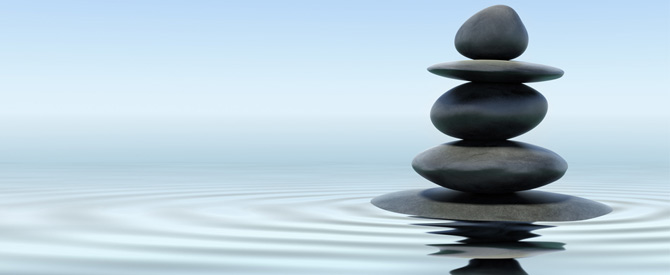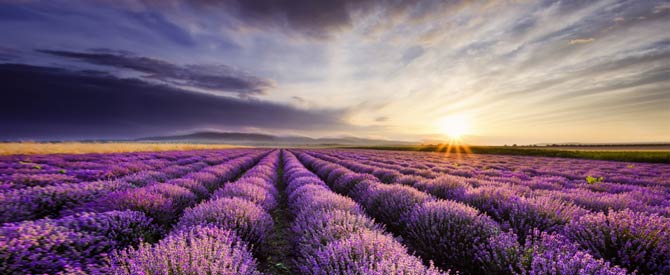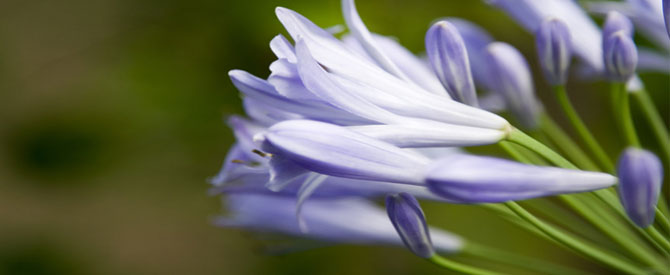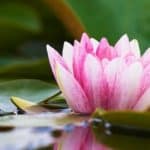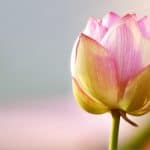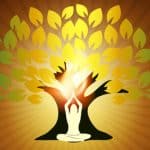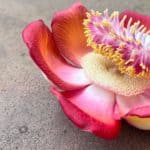There is a purpose behind our taking up bodies and coming here to live this mortal existence. —Swami Chinmayananda
We are spiritual beings who have forgotten our essential nature. Our true purpose is to regain the knowledge of our blissful spiritual Self.
The problem is that we don’t realize this higher purpose and think we are here to achieve the goals that we have set out for this life. However, we live many lives. The goals of this life are the means to fulfilling our ultimate goal of life, and not the real end.
Commonly, we think that our life goals are to have a good job or career, make a comfortable living, surround ourselves with family and friends, and have fun along the way. We think, “There’s so much to know, to experience and to enjoy!”
Life after life, we keep doing these same things. But there is much more. There is a greater happiness that lies beyond them.
Two types of travellers on the journey of life
In Vedanta, the spiritual science of life, there is a text called the Kathopanishad. It describes two types of travellers on the journey of life, and the destination that each one attains.
The Kathopanishad uses an analogy of a chariot and a traveller riding in it to illustrate his evolutionary journey to the realisation of his essential Self.
Each of us is an individual soul, or that traveller. Just as a traveller brings along his tools and supplies, the soul carries a body and a mind. (I’ve used the pronoun “he” for simplicity in writing. The soul has no gender).
Feeling thoughts are called the “mind” in Vedanta, and thinking thoughts are the “intellect.”
The individual soul is the owner of the chariot. The chariot represents his physical body.
A charioteer who holds the reins to four horses, drives the owner of the chariot. The charioteer represents the owner’s intellect, and the reins represent his emotional mind.
The four horses represent the owner’s five senses organs of perception—the eyes, the ears, the nose, the tongue and the skin. (Four horses—five senses…please don’t take this literally. A chariot can be yoked evenly to four horses and not five. It is a pictorial representation.)
Each of the horses is attracted to its own field of experience—the eyes are attracted to enchanting forms and colours, the ears to pleasing sounds, the nose to sweet smells, the tongue to delicious tastes, and the skin to tantalizing textures and touch.
The road on which the chariot travels represents the world of captivating objects.
Two different outcomes
The first traveller is one whose charioteer lacks the knowledge of the destination and how to get there. He keeps a loose hold on the reins, which doesn’t give the horses clear direction on where to go. The horses being relatively free of restraint and guidance, run wildly toward their respective fields of experiences.
The owner of the chariot ends up wandering aimlessly in life looking for one or another thing to enjoy. His chariot is destroyed by the undisciplined horses. Sadly, he doesn’t reach his destination.
The second traveller, on the other hand, has a strong and intelligent charioteer with a clear vision of the destination and how to get there. He wields the reins astutely, prudently guiding the horses to where he wants them to go. Such a charioteer takes the chariot owner successfully to his destination.
First cultivate knowledge
The main message of the teaching is that we must cultivate the right vision of life in the intellect. This can be done by gaining spiritual knowledge, keeping spiritual company and reflecting on life.
Without this knowledge, we become enmeshed in our own wrong attachments and fascination for the world.
We become like the first traveller, doing the same things life after life, facing the same insecurities, fears, anxieties and enjoying the temporary joys that the world brings us.
The happiness we seek is within
Sensual pleasure is not real happiness. It is illusory, transient and impermanent—Swami Sivananda
We strive to gain happiness from acquiring and enjoying objects and people. But this joy is unsatisfactory because it is impermanent. Vedanta tells us that real and permanent happiness cannot be found in the outer world.
The happiness we are seeking is actually within us. It is the nature of our own spiritual essence. (To understand this better, read: True happiness is INSIDE–really?)
The senses are like strong, wild horses that are always pulling us toward the world. To keep them under control, the mind is to be kept steady under the guidance of a discerning intellect.
To the extent we curtail our desire to seek satisfaction from the outer world, to that extent will we be able to turn inwards and focus on our spiritual growth. Reflection, contemplation or meditation doesn’t happen otherwise.
Know and then apply
Our ultimate goal is to regain the knowledge of our divine spiritual nature. By understanding the tools that we have on our journey in life—the body, the intellect, the mind and the sense organs, we can use them effectively to move closer to our destination.
Then we will be living life purposefully.
Like this post? Sign up for the free fortnightly Spiritual Solutions Newsletter and receive the latest articles, news and updates in your email inbox!

